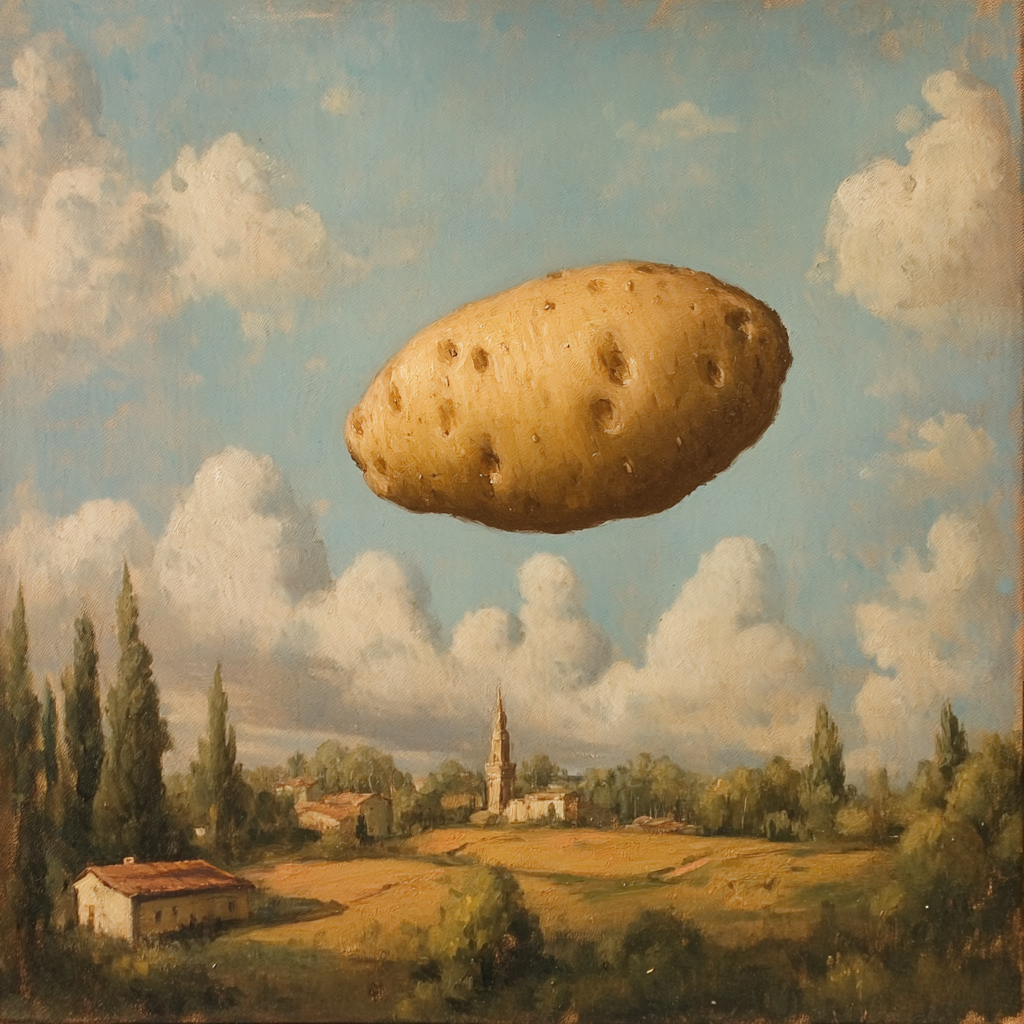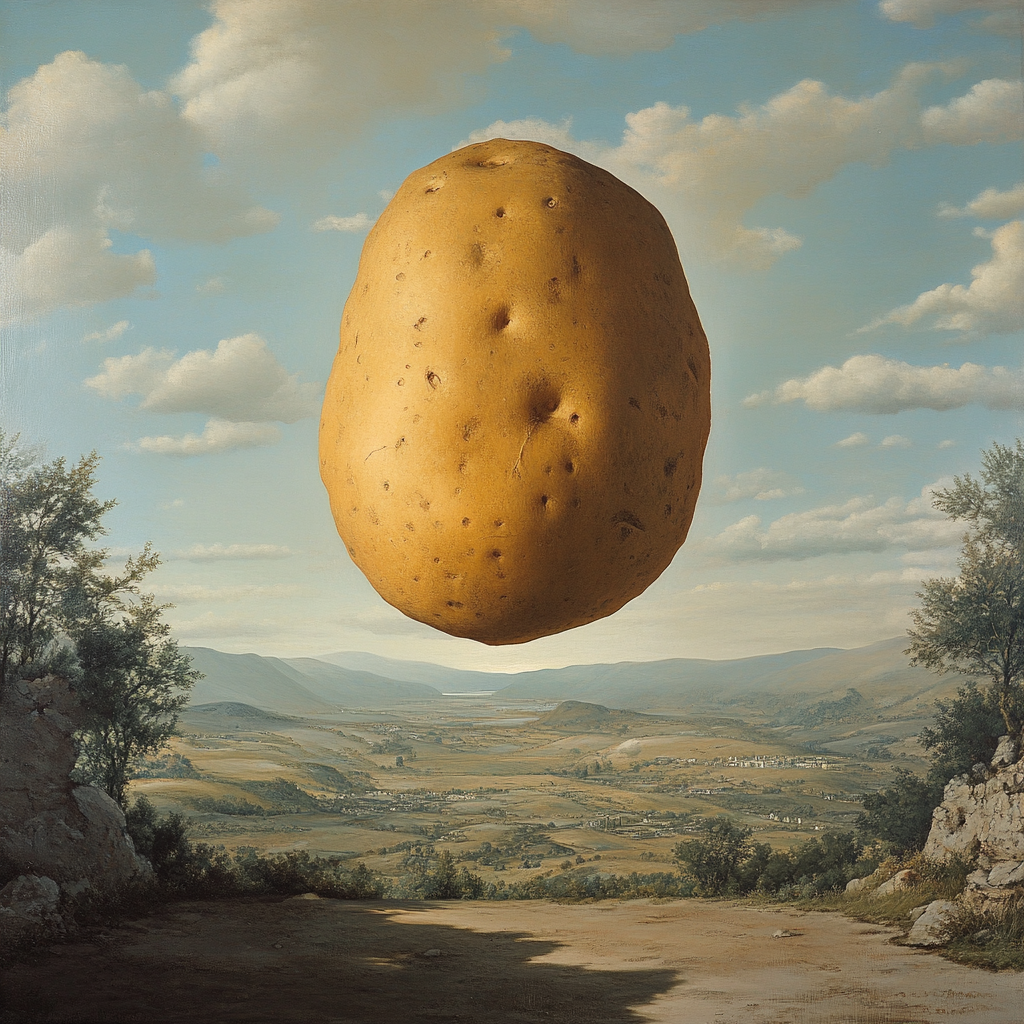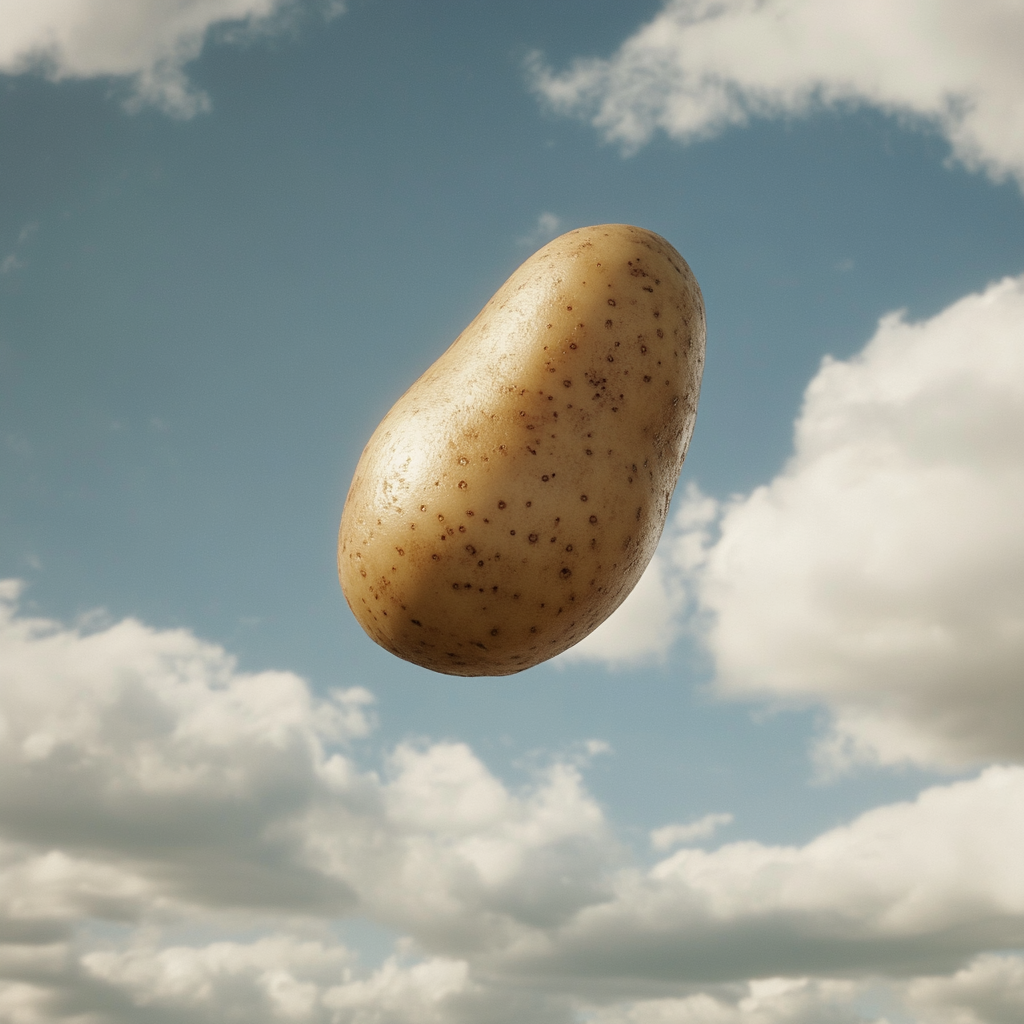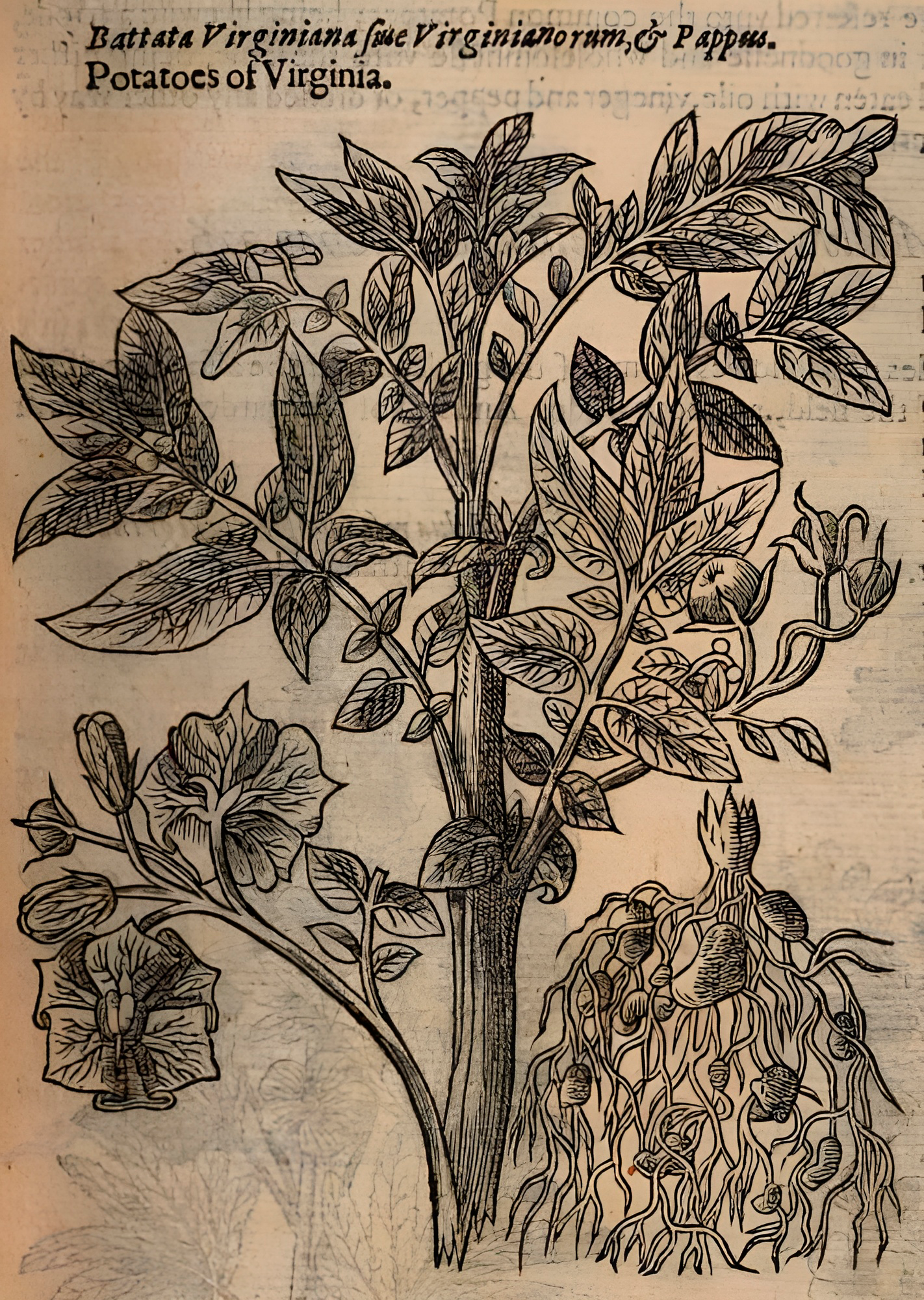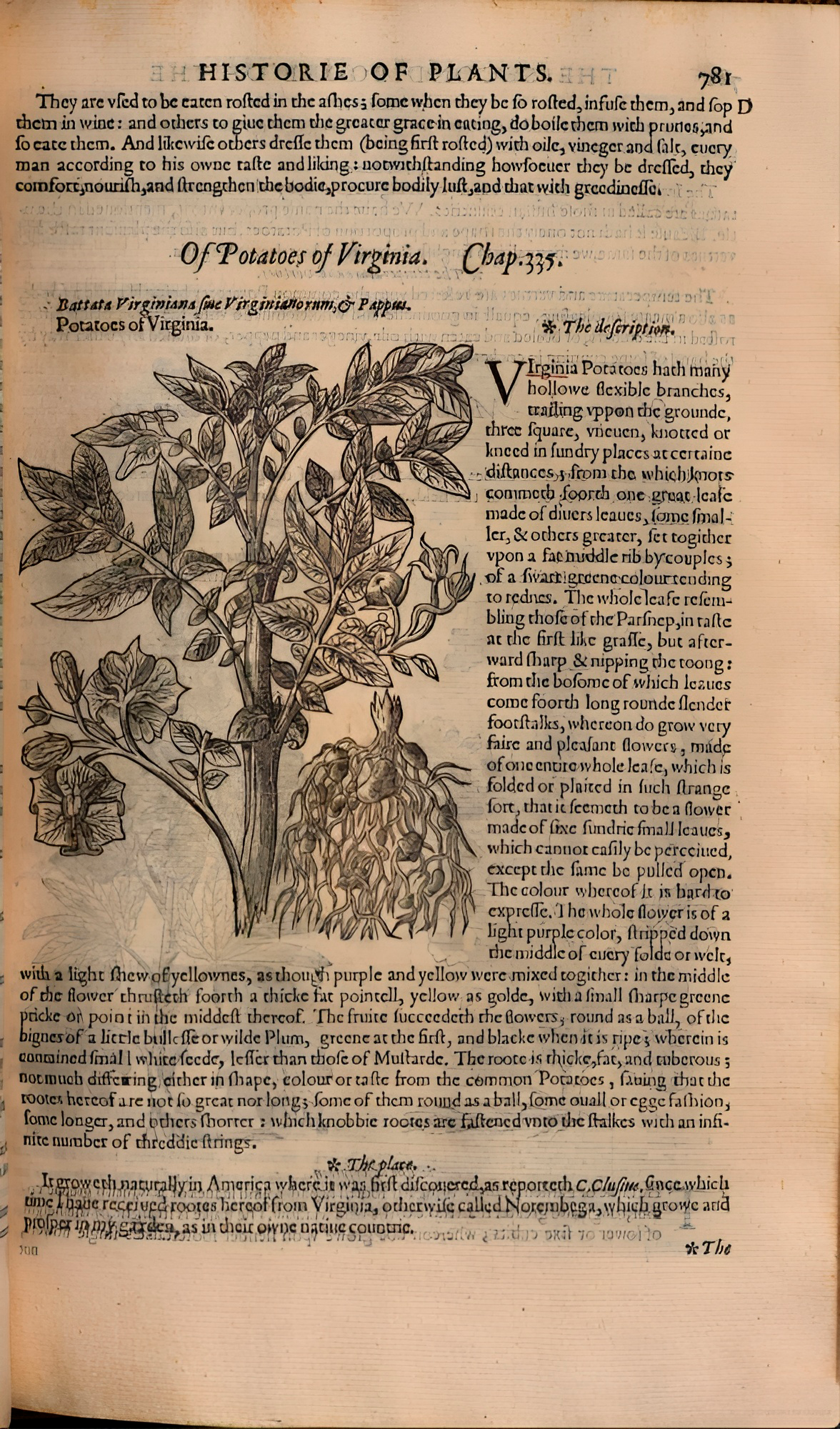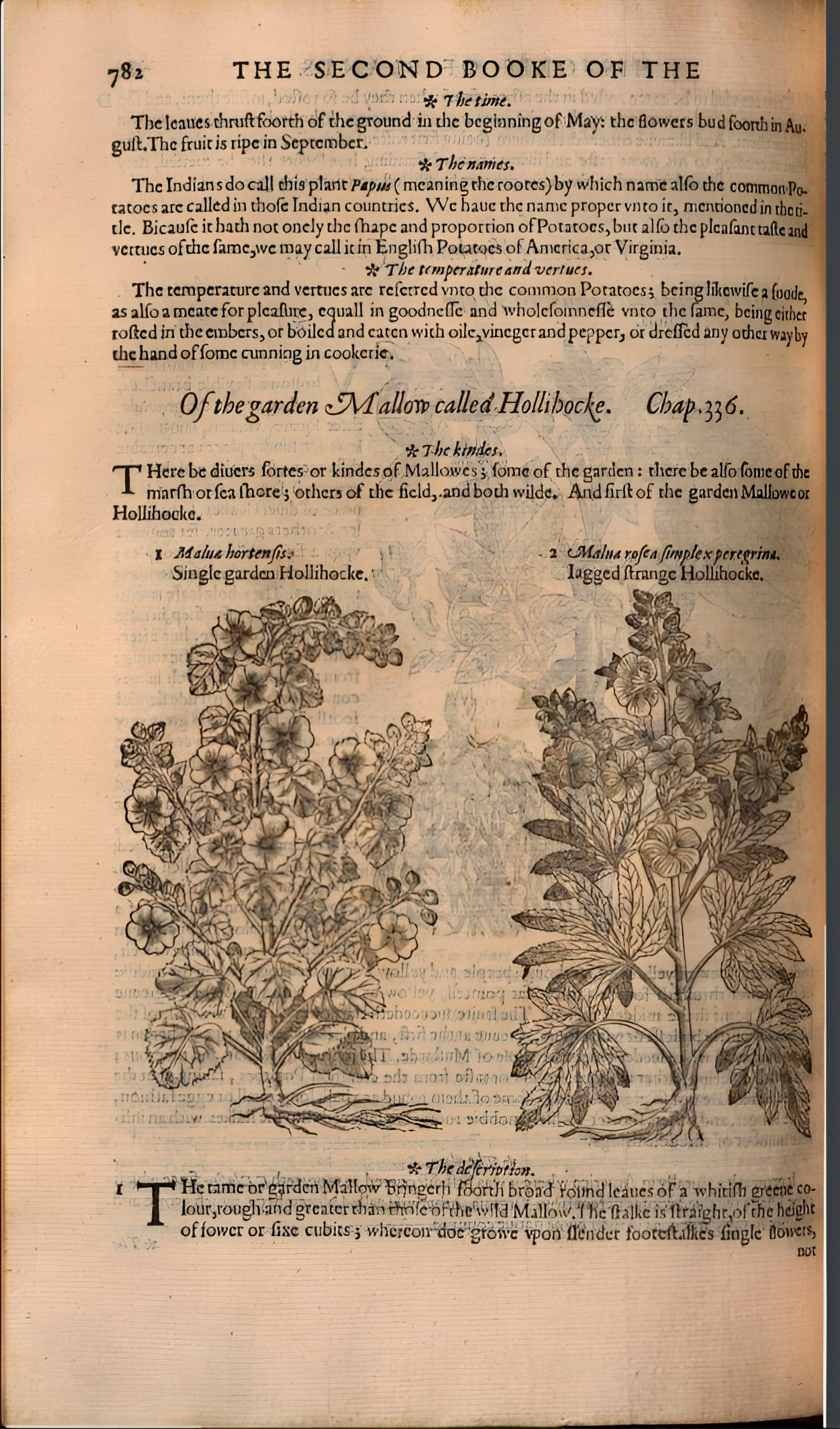Potato Fame 1597-2021
Yes, unfortunately years of potato fame have been years of famine for everyone else. The world wars have apparently been years of potato greatness as well. The graph shows the word "potato" becoming more and more common in the English language. This is not a coincidence. As the word becomes more common, the potato is taking over the world. Also, it seems that there is a direct correlation between the frequency of the word "potato" and the increase in the number of couches sold.
In 1597, the potato made its grand entrance into English literature, courtesy of John Gerard's 'The Herball or Generall Historie of Plantes.' Gerard, who was swapping plant gossip with the botanist Clusius and even grew some spuds himself, gave us the first written description. However, like a tourist with a bad map, Gerard got the potato's origins wrong, dubbing it the 'Virginian Potato' to differentiate it from its sweeter, red cousin. So, the potato's English story begins with a bit of a geographical mix-up, but hey, at least it got a book deal.
Key Historical Trends (or, The Potato's Slow, Starchy Takeover)
Early Mentions (1600-1700): "The Suspicious Spud" Era
Europeans met the potato with all the enthusiasm of a soggy chip. 'Nightshade? Sounds like a rock band for vampires,' they thought. Mostly, it was horse food. Talk about a rough start.
Mentions were rarer than a well-done French fry. The potato was basically the awkward cousin at the family reunion.
Rise in Mentions (1700-1800): "The Little Ice Age, Big Potato Dreams"
Turns out, when the world freezes, potatoes are your best friend. Governments, in a moment of clarity, realized 'Hey, maybe this weird root isn't so bad.' Mentions skyrocketed as people realized they could survive on something other than frozen turnips.
The potato started its campaign of world domination, one frostbitten farm at a time.
Sharp Increase (1800-1850): "The Potato's Peak, and a Painful Fall"
The potato became the rockstar of European agriculture, fueling cities and causing a population boom. And then, the Great Irish Famine. A stark reminder that even rockstars can have a bad day. Or a blight. A very bad blight.
Global attention was drawn to the potato. Mostly in the form of people yelling about how hungry they were.
Decline Post-Famine (1850-1900): "The Potato's Post-Fame Blues"
After the famine, everyone was like, 'Okay, maybe we shouldn't put all our eggs (or potatoes) in one basket.' Mentions dipped, along with Ireland's population. But small famines kept the potato in the news, like a has-been celebrity clinging to relevance.
20th Century Peaks (1900-1950): "The Potato Goes to War (and Gets Deep-Fried)"
No more starving leprechauns, but instead World Wars: when potatoes became soldiers' best friends. And civilians' too. Also, the birth of the chip. Because even in wartime, you need a good snack.
Industrial agriculture and the rise of processed potato products. Proof that humans will find a way to make anything into a convenient, salty snack.
Modern Mentions (1950-2022): "The Potato: Global Superstar"
Potatoes are everywhere, in every cuisine. They've achieved global domination without firing a single shot (or frying a single chip... okay, maybe a few chips). Genetic research keeps the potato in the lab, and on the menu.
The potato has achieved a state of omnipresence. It is everywhere. Resistance is futile.
